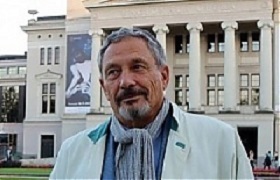Analytics, EU – Baltic States, Modern EU
International Internet Magazine. Baltic States news & analytics
Saturday, 27.12.2025, 05:45
Supporting shared European values: facing Rumanian Presidency in the Council
 Print version
Print version |
|---|
The Presidency comes at a challenging and key moment for the
European future. With Brexit taking place at the end of March, European Parliament
elections in May and discussions on key legislative initiatives in the next
multi-annual financial framework, to name a few, the Romanian Presidency’s work
agenda is really complicated and full of urgent issues.
A key milestone for the Presidency will be the informal
Summit in Sibiu on 9 May, when EU leaders will discuss a new strategic agenda
for 2019-2024.
Throughout the Presidency, the Romanian government will
ensure the necessary coordination and political drive in the Council and aim to
further advance the economic, social and territorial convergence, in line with
the presidency motto “cohesion, a shared European value”.
Presidency’s agenda
The Romanian presidency programme is based on four pillars, placing European
citizens’ interests and aspirations at the centre of its action:
- Firstly, convergence and growth, focusing on cohesion
policy, competition and connectivity.
- Secondly, security in Europe, including protection of
borders, the reform of Schengen and the future of the area of freedom, security
and justice Romania is not a Schengen member).
- Thirdly, making Europe a stronger global actor with a
particular emphasis on the reinforcement of Western Balkans’ cooperation and
the Eastern Partnership.
- Finally, a Europe of common values, emphasising
solidarity, equal opportunities and respect for human dignity.
In all of this, the Romanian Presidency will seek to put the
citizens at the centre of the programme, in order to focus on policies that
improve people’s lives.
Preparations for the Presidency started already in November
2018: the European Policy Center arranged a policy briefing in Brussels
together with the Romania’s Permanent Representation Office to the EU. At the
initial briefing, Luminița Teodora
Odobescu, Romania’s Permanent Representative to the EU, has set out the
priorities of the Romanian Presidency.
The EU member
states holding the rotating Presidency work together closely in groups of
three, called “trios”; the system was introduced by the Lisbon Treaty in 2009.
The trio sets long-term goals and prepares a common agenda determining the
topics and major issues that will be addressed by the Council over an 18 month
period. On the basis of this programme, each of the three countries prepares
its own more detailed 6-month programme. The current trio is made up of the
presidencies of the Romania, Finland and Croatia.
https://www.consilium.europa.eu/en/council-eu/presidency-council-eu/
The General
Secretariat of the Council is assisting the European Council
and the Council of the EU in organising Council's work and ensuring the
coherence of the implementation of its 18-month programme, i.e. assembling 3
rotating Presidencies.
The Baltic Course wishes the Romanian government and its
people a successful implementation of the Presidency’s agenda and courageous
inspiration to the Presidential team.








 «The Baltic Course» Is Sold and Stays in Business!
«The Baltic Course» Is Sold and Stays in Business!

